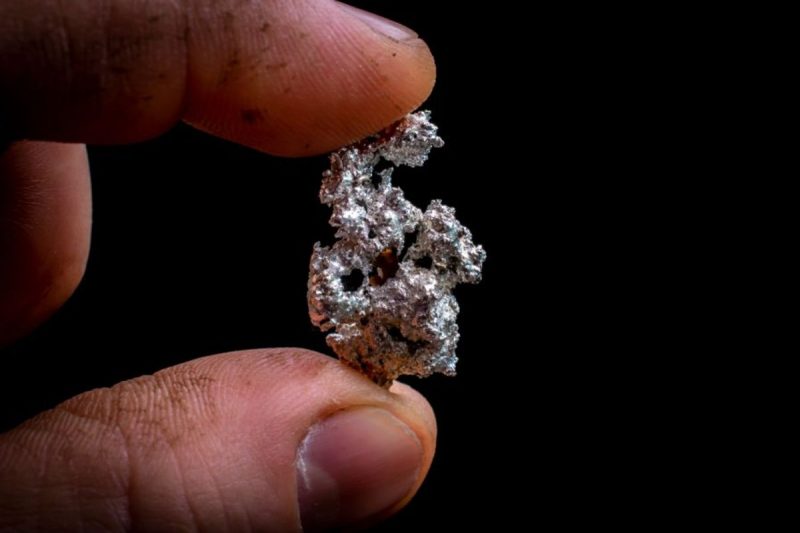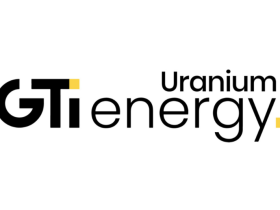The S&P/TSX Venture Composite Index (INDEXTSI:JX) was on the rise last week, finishing at 627.93.
On Wednesday (July 12), Canada’s central bank raised interest rates for the 10th time since March 2022. The 25 basis point increase took the benchmark rate to 5 percent, marketing the first time it’s been at that level since April 2001.
As in the US, Canada’s aggressive increases are part of the country’s fight to bring inflation down to the 2 percent level. Inflation in Canada measured 3.4 percent in June, and market watchers are now waiting for the next reading on July 18.
Against that backdrop, a variety of TSXV-listed resource stocks made moves over the last five days. Read on to find out which companies rose the most during the period and what was affecting their share prices.
1. ValOre Metals (TSXV:VO)
Weekly gain: 54.55 percent; market cap: C$13.06 million; current share price: C$0.085
ValOre Metals focuses on projects with significant prior investment and high-value mineralization. Its primary project is the Pedra Branca platinum-group metals project in Brazil, which it is currently exploring through a 5,000 meter drill program.
ValOre also wholly owns the Baffin gold property and the Hatchet Lake uranium property, and has a 50 percent interest in the Genesis uranium property. ValOre closed the sale of its Angilak uranium property to Latitude Uranium (CSE:LUR) in June.
Although the company hasn’t released news in July, its share price climbed last week to peak at C$0.09 on Thursday (July 13).
2. Imperial Mining (IPG:CA)
Weekly gain: 53.33 percent; market cap: C$15.51 million; current share price: C$0.115
Imperial Mining is a technology metals company focused on its Crater Lake scandium project in Quebec, Canada. Earlier this year, the company shared that it had filed a patent application for its “two-stage hydrometallurgical methods and processes for the extraction of scandium and rare earth elements from Crater Lake project mineralization.”
While Imperial Mining didn’t release news last week, it ended the previous period by closing a non-brokered private placement for proceeds of C$1.6 million. The funds will be used in part to advance Crater Lake.
3. DLP Resources (TSXV:DLP)
Weekly gain: 49.47 percent; market cap: C$47.58 million; current share price: C$0.71
Exploration company DLP Resources is focused on base metals and cobalt projects in Southeast BC, with a portfolio of properties that includes the Aldrige 1 and 2 groups, the Hungry Creek copper-cobalt-silver project and the Redburn Creek copper-cobalt project. The company also has the Aurora porphyry copper-molybdenum project in Peru.
DLP Resources hasn’t released news in July, but its share price jumped from C$0.51 to C$0.74 during early trading hours last Monday (July 10), marking a new all-time high for the explorer.
4. VVC Resources (TSXV:VVC)
Weekly gain: 45.45 percent; market cap: C$41.9 million; current share price: C$0.08
VVC Resources’ portfolio includes helium and natural gas production in the US, as well as copper, base metals and precious metals projects in Mexico. Its Gloria copper project is fully permitted and has been approved for a pilot mine.
VVC has 14.09 percent ownership of Proton Green, which announced the startup of its Phase 1 helium extraction plant in Arizona on June 26. While the company didn’t release news last week, its share price climbed to C$0.08 on Friday (July 14).
5. Ultra Lithium (TSXV:ULT)
Weekly gain: 44.44 percent; market cap: C$10.12 million; current share price: C$0.065
Ultra Lithium is a lithium and gold company with projects in Argentina, Canada and the US. Its two lithium properties in Argentina, Laguna Verde I and II, are lithium brines, while its Ontario lithium projects, Georgia Lake and Forgan Lake, are pegmatite deposits.
In May, Ultra Lithium and Power Minerals (ASX:PNN,OTC Pink:PEIMF) signed a binding term sheet through which Ultra Lithium will sell its Laguna Verde projects to Power Minerals in exchange for up to 50 million shares of the latter company. When the agreement closes, the two will work towards a maiden JORC mineral resource for Laguna Verde.
The company hasn’t released news since May, but its share price performed strongly last week.
FAQs for TSXV stocks
What is the difference between the TSX and TSXV?
The TSX, or Toronto Stock Exchange, is used by senior companies with larger market caps, while the TSXV, or TSX Venture Exchange, is used by smaller-cap companies. Companies listed on the TSXV can graduate to the senior exchange.
How many companies are listed on the TSXV?
As of April 2023, there were 1,713 companies listed on the TSXV, 953 of which were mining companies. Comparatively, the TSX was home to 1,789 companies, with 190 of those being mining companies.
Together the TSX and TSXV host around 40 percent of the world’s public mining companies.
How much does it cost to list on the TSXV?
There are a variety of different fees that companies must pay to list on the TSXV, and according to the exchange, they can vary based on the transaction’s nature and complexity. The listing fee alone will most likely cost between C$10,000 to C$70,000. Accounting and auditing fees could rack up between C$25,000 and C$100,000, while legal fees are expected to be over C$75,000 and an underwriters’ commission may hit up to 12 percent.
The exchange lists a handful of other fees and expenses companies can expect, including but not limited to security commission and transfer agency fees, investor relations costs and director and officer liability insurance.
These are all just for the initial listing, of course. There are ongoing expenses once companies are trading, such as sustaining fees and additional listing fees, plus the costs associated with filing regular reports.
How do you trade on the TSXV?
Investors can trade on the TSXV the way they would trade stocks on any exchange. This means they can use a stock broker or an individual investment account to buy and sell shares of TSXV-listed companies during the exchange’s trading hours.
Data for 5 Top Weekly TSXV Performers articles is retrieved each Friday after market close using TradingView’s stock screener. Only companies with market capitalizations greater than C$10 million prior to the week’s gains are included. Companies within the non-energy minerals and energy minerals are considered.
Securities Disclosure: I, Lauren Kelly, hold no direct investment interest in any company mentioned in this article.
Securities Disclosure: I, Charlotte McLeod, hold no direct investment interest in any company mentioned in this article.






